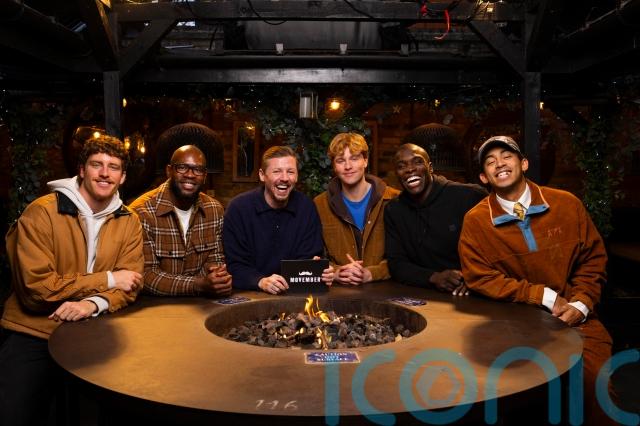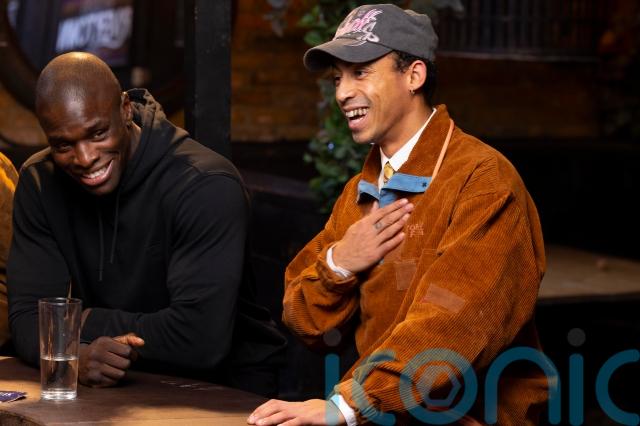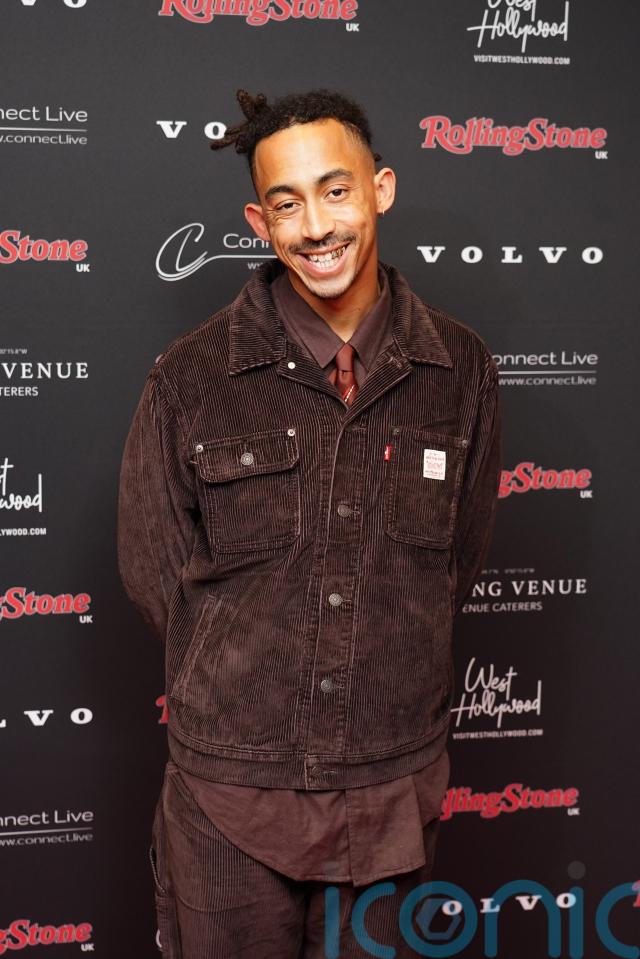
Jordan Stephens – best known for being one half of musical duo Rizzle Kicks – has opened up about how he looks after his mental health.
“I actually used to cope with my mental health quite poorly and now I think I cope with it quite well – so I’m trying to help others do the same,” says the 33-year-old, who features in a new campaign for the charity Movember.
Ahead of the announcement of England’s first Men’s Health Strategy by the UK government, Stephens and other famous faces, including Professor Green, Ugo Monye, Olly Bowman, Paul Olima and Dominic Lawrence, have taken part in a series of interviews on Movember’s YouTube channels to explore masculinity, mental health and resilience. The two episodes, Roasts & Toasts is released on November 6, and Fired Up on November 7.
Stephens says he has been in a “very fortunate position” to afford therapy and various life experiences that have reframed his outlook.
“I’ve learned in real time how important it is to feel and connect,” says the performer and writer. “I now consider it as a kind of duty to try and spread that message as it’s certainly not easy to find this information out.”

A recent Movember poll found that 60% of UK men believe it’s harder to be a ‘good man’ today than it was 10 years ago. Stephens adds to this idea saying: “I think because of the realities of the proportion of men that can cause havoc in the world, people forget that the everyday man goes through a lot.
“I like to support those men because I think they can make a better world if supported enough.
When it comes to his own mental health, Stephens who also wrote the book ‘Avoidance, Drugs, Heartbreak & Dogs’, says his checklist to look after himself “isn’t sexy”, even calling it “boring”.
He says: “It’s a six-tent pole formula for me when it comes to mental health and that is sleep, nutrition, nature, community and solitude in equal measure, exercise and creativity.
“I would argue if any human being can make sure they’re tending to those six, they’re probably going to be OK. Usually, when one of those are off, that’s when we start to unwind.”
The Men’s Health Strategy is aimed to reshape how men’s health is understood and supported nationwide. It aims to tackle these long-standing inequalities by improving access to care, focusing on prevention and ensuring services respond to men’s real lives. Stephens emphasises the importance of men speaking up, saying they are often scared of the consequences of doing so.
“I think a lot of male identity is surrounded around risk,” he says. “If we were to generalise between men and women, the idea is that men tend to be drawn to risky situations, for example, extreme sports, or gambling. However, for some reason, that logic doesn’t apply to sharing how we feel.
“Men tend to be afraid that the person they tell will reject them or they will use their ‘weaknesses’ as leverage over them. However, I would say that it is a risk with an incredibly high reward – arguably the highest one. If you’re brave enough to be honest about how you feel to a person, the chances are they feel the same way themselves and you’re leading by example.

“There isn’t a single relationship in the world that’s built from anything other than vulnerability.”
On the other hand, if it is giving advice and supporting someone, Stephens admits that being that person can also be hard. “I think again, I’m generalising, but maybe people, particularly those who have more of a masculine energy, tend to have a desire to fix situations and come up with immediate solutions.
“I think one of the biggest challenges we have is realising that its sometimes more beneficial just to listen, share your own vulnerability and allow that person to feel safe.
“Sometimes someone’s got to feel sad or angry and our only job is to make sure that we don’t judge how they feel and we’re there within reason.
“I would love if all of us were taught this, but my advice is to stay open, stay curious and don’t be afraid to share yourself.”
Stephens adds: “I am a big fan of feminism and I have read a lot of feminist literature.
“A lot of my friends are women and lots of women follow me, because I guess I’m more accessible than other men.
“My memory of the 2017 resurgence of the Me Too movement was that women were asking men to build communities and help each other. I feel very protective over boys and their wellbeing, because I don’t understand what else is going to happen. I don’t know what the other options are, but I really believe in preventative, rather than remedial work.”

Stephens says wishes for a generation of men and boys to lean into the idea that building connections is way more valuable than a pursuit of profit and status.
“I understand these things are needed in moderation and sometimes when I talk, I actually get pushback from men, because my outlook on life is in direct contradiction to everything that capitalist patriarchy tells men is important,” he says.
“But my belief is that money shouldn’t come at a loss of connection, or the opportunity to be a good dad or partner. These things are way more important and they will actually bring some kind of financial security and reward if done rightly.
“I think in schools, kids should learn how to identify how they feel and engage with others,” he adds. “I would love to see the birth of a communally minded generation because phones, the internet… all of these things are great, but in many cases they are also creating what seems to be a massive separation among people.
“I would love to see a place where people’s main value in life is to be connected.”
Subscribe or register today to discover more from DonegalLive.ie
Buy the e-paper of the Donegal Democrat, Donegal People's Press, Donegal Post and Inish Times here for instant access to Donegal's premier news titles.
Keep up with the latest news from Donegal with our daily newsletter featuring the most important stories of the day delivered to your inbox every evening at 5pm.